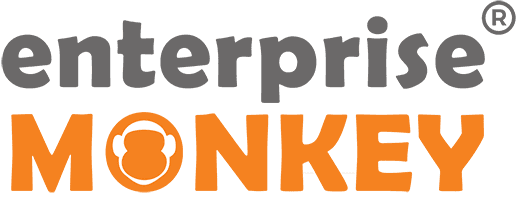Did you know that 76% of consumers like to browse the company’s website before visiting the physical store?
Websites are the nerves of businesses these days. With the significant rise in internet users, the potential for maximising profits from online channels has taken a leap.
However, as much as it is essential to have a website for a company, it is more crucial to have a perfectly build website based on specific parameters like:
- Your website goals and target audiences
- User Experience (UX)
- Technical considerations include the selection of CMS, programming language, framework, etc.
Witnessing these intricacies, it is needless to say that you need hands-on knowledge and resources to build a truly functional, appealing, and conversant website. This could be the primary reason why you are looking for a perfect website developer in Australia who can handle your project with utmost care.
First impressions of your site always matter and critically impact final business outcomes. Therefore, choosing the right website developer is a crucial decision that can significantly impact your business’s online presence and help you grab the attention of your potential customers.
In Australia, a country known for its vibrant digital landscape, finding a skilled and reliable website developer requires careful consideration. Therefore, we have created this detailed article explaining every factor you must check before finalising your website development agency.
This guide will help you navigate the process and select the best developer for your needs. We’ll also provide a questionnaire to help you finalise your best web development partner.
Website Development Company vs DIY Themes vs Freelancer: Let’s Understand the Differences
When you proceed with your web development project, you must consider various factors. One such underlying factor is deciding upon the most suitable approach to building your website.
You have three primary options: hiring an expert Website Development Company, relying upon DIY Themes, or selecting an experienced Freelancer to work on your project.
[Also read: Website Builder vs Website Developer: What’s Right for Your Business?]
Here’s a comparison to help you make the optimal choice –
| Factors | Website Development Company | DIY Themes | Freelancer |
| Expertise | Offers a team of professionals with diverse skills, including developers, designers, and marketers. | Provides pre-designed themes/templates for users to create websites without coding knowledge. | Typically specialises in a specific area (e.g., front-end development, WordPress customisation) but may offer a range of personalised services. |
| Cost | Tends to have higher upfront costs due to professional services and comprehensive solutions. | Generally more cost-effective upfront, as users pay for themes or plugins rather than hiring a team. | Can offer competitive rates but may vary based on the freelancer’s experience and expertise. |
| Scalability | Capable of handling large-scale projects, scalability, and complex functionalities due to team expertise. | Limited scalability compared to custom development but suitable for small to medium-sized websites. | Can handle smaller projects efficiently but may face challenges with scalability for larger projects. |
| Timeframe | Typically adheres to project timelines but may have longer turnaround times for complex projects. | Quick setup and launch due to pre-designed themes/templates, suitable for rapid deployment. | Project timelines can vary based on freelancer availability and workload. |
While it’s most tempting to pick DIY themes or freelancers due to their apparent cost advantages, choosing a company to execute the job is most often the right decision from a long-term viewpoint.
Why is a Website Development Agency Important for Your Project?
The above differences show that a website development company can be the best choice for your development project.
Hiring a website development firm is crucial due to its technical expertise, customisation abilities, and focus on user experience. They bring in-depth knowledge of programming languages and frameworks to build and maintain websites with complex functionalities and seamless performance.

Moreover, the expert developers of the agency can bridge the gap between your creative vision and the technical know-how to build it. Ensuring a beautiful aesthetic, their expertise translates your desired functionality and design into a user-friendly website.
Therefore, if your website includes complex functionalities, is visioned to achieve your goals and thrives online, a website development agency is an essential partner for your project. However, another big question is how to shortlist and finalise the best agency in Australia.
Thus, we have jotted down the 10 most essential consideration points to help you navigate in the right direction. Keep reading!
10 Key Points to Consider Before Selecting Your Website Development Partner in Australia
Building a website is an investment, and choosing the right developer in Australia is crucial for success. Here are 10 key points to consider before selecting your website development partner:

1. Understand Your Needs
Selecting the perfect web development partner hinges on understanding your own needs. This clarity acts as a roadmap. It allows you to find developers with specific expertise to match your website’s goals, whether a simple brochure site or a complex e-commerce platform.
Therefore, before you start searching for a developer, it’s essential to have a clear understanding of your website’s requirements. Consider the following:
- Purpose: What is the primary purpose of your website? What type of website do you want, Static or Dynamic? Whether you want to develop an eCommerce platform, a blog, a portfolio, or a corporate site?
- Features: List the features and functionalities you need, such as contact forms, booking systems, payment gateways, and content management systems.
- Design Preferences: Consider the interactive website design and user experience you want to achieve. Do you have any specific preferences, website design ideas, or brand guidelines?
- Budget: Determine your budget for the project. This will help you narrow down your options and set realistic expectations.
Additionally, think about the technical requirements, post-launch support, scalability for future growth, and your communication preferences.
2. Research Potential Developers
Once you clearly understand your needs, research potential website development agencies to ensure you choose a team that aligns with your project’s needs and goals.
Start by examining their portfolio to understand their experience and the quality of their work. Focus on projects similar to yours in scope and industry to gain insights into their reliability, communication skills, and overall client satisfaction.
Investigate their technical expertise to ensure they are proficient in the technologies and platforms you plan to use, such as specific content management systems (CMS), programming languages, or frameworks.
In a nutshell:
|
3. Check Their Service Area
The foremost thing you should check is the company’s service area. You must know which part of the industry they majorly serve, such as startups, SMEs, and large organisations.
As a startup, SME, or other entity, you should hire a web developer with extensive experience in an industry similar to your niche.
What’s needed in a small business or startup website differs entirely from what a big and established company requires. The type of functionality, features, and design presuppose a different approach.
You must also check if they understand your niche and can create something meaningful for your targeted user persona.
Naturally, the strategic approach, appropriate CMS, and expertise needed for a fashion e-commerce store would be very different from a B2B information-oriented website, and it’s essential to pick a company that understands these differences. Only then can they successfully design a website that is a real lead magnet for you.
Hence, before finalising, you must check the company’s service area and pick one whose expertise overlaps your requirements.
4. Evaluate Their Expertise
With the long-term investment angle in your business website, you must ensure that you trust only an expert to generate the highest returns over time.
Often, impressive salespeople make their companies sound like your best choice, but their website gives away the truth. It’s advisable to examine the messaging on the commercial pages of their website to ascertain their expertise.
However, you may review if their approach is based on psychology-backed strategies and execution per the latest standards. You could also examine their blogs to assess their domain expertise, for true thought leaders in any industry never shy away from sharing the depths of their knowledge.
Make sure whichever platforms and technology they showcase have specialised and dedicated teams to work on these.
If you already have a specific platform in mind for your web development project, check their respective landing page based on such a platform. The most preferred platforms include WordPress, Joomla, Drupal, and Magento.
Consider the following:
|
5. Ensure They Have Transparent Processes

A specific mechanism must be followed to build a good and optimised website, such as planning a strategy, developing intent-based aesthetics and messaging, executing the backend, coding, testing, etc.
When choosing your web developer, you must learn about the details of the processes they follow. You can ask for their brochures or ebooks or check their website for this information.
Going through the brochure is very helpful in providing you with all the information you need in a single place to quickly understand their overall brand, expertise, reliability, and processes.
6. Communication and Collaboration
Effective collaboration and communication between developer and client is the key to a successful project iteration. During the website development process, different iterations are introduced from what was discussed in the first meeting.
Even if there aren’t iterations, continuous back-and-forth interaction is needed to fixate aesthetics and content. This calls for seamless communication and task management.
However, good project management tools ensure that the primary concerns are not missed or are subject to unnecessary communication gaps.
You must ask your developer if they have any measures in the form of popular and easy-to-use tools such as Slack, Trello, Jira, Skype, and many more to ensure that your project is smoothly executed with uninterrupted communication at all times.
 [Source: Trello]
[Source: Trello]
Assess the developer’s communication skills and their ability to work collaboratively:
|
7. Consider the Cost
The cost of building a website in Australia varies wildly depending on the developer’s expertise, experience, and the level of customisation your project requires. While using pre-set themes is highly economical, customisation comes with its advantages and proportional costs.
Moreover, when you build your website on a budget, you must ensure you don’t cut out on the features you need and compromise where it matters since it is a long-term investment.
Pro Tips:
|
In order to ensure your project doesn’t overshoot the initially agreed commercial with the company, it’s good to hire one that helps you pick the right features needed for your website right from the start and is also transparent with all the associated costs.
These days, some web development companies often provide their potential customers with a cost calculator on their website to keep the pricing transparent with no unpleasant surprises, unrolling later in the form of hidden costs. You must look out and explore such features.
8. Check References and Reviews
You must check potential developers’ references and reviews to ensure you select a reliable and competent team. Start by asking the developers for a list of references, including past clients who can provide firsthand feedback on their experience working with the developer.
You can ask specific questions from these references about the developer’s communication, project management, adherence to deadlines, and overall quality of work.
Additionally, explore online review platforms like Clutch, GoodFirms, and Google Reviews to gather a broader range of client feedback. Look for consistent positive reviews and detailed accounts of the developer’s strengths and potential weaknesses.
Thus, check the following aspects before moving further:
- Client Testimonials: Read various client testimonials and case studies on the developer’s website.
- Reviews: Look for reviews on third-party platforms like Google, Yelp, and Trustpilot.
- References: Ask the developer for references and contact previous clients for firsthand feedback.
By thoroughly checking testimonials, references, and reviews, you can gain valuable insights into the developer’s reliability, performance, and ability to meet your project’s requirements. This will ultimately help you make a well-informed decision.
9. Ensure Post-Launch Support
Managing and maintaining any website requires support services for many of its functionalities over the long term. These include your eCommerce setup, domain and hosting renewals, or personalised email accounts.
However, when choosing your web design company, it’s vital to pick one that offers genuine support on an ongoing basis.
Without reliable after-sales support, you might be in a difficult situation, needing external pre-development services and incurring unnecessary charges.
The additional time and effort required to resolve these issues can be highly inconvenient, underscoring the importance of choosing a company with predefined support and maintenance.
Therefore, the support aspect is not just important; it’s critical. The company you choose should be accountable for providing predefined support and maintenance for at least a few months in their initial contract.
A successful business website launch is just the beginning. Ensure the developer offers post-launch support to address any issues and make necessary updates:
|
10. Ensure You Get Complete Ownership Of your Website
You must ensure that the company hands you the complete website ownership.
Often, some minor changes need to be made after a few months of your website launch, which can be executed internally. For instance, changing some pages’ content after support has expired.
Frequently paying additional charges for small tasks makes no sense in those cases. Alternatively, if you need to change your website developing partner in the future, your needs may not be big enough to require a revamp from scratch.
Hence, to ensure that you’re not forced to depend on that company in the future, it’s best to confirm in advance if they hand over the essential login credentials and the source code for the website.
| Getting Quotes and Making a Decision
Once you’ve shortlisted a few developers, request quotes that outline their services, pricing structure, and project timeline. Be bold, ask questions, and clarify any doubts. |
What Are the Questions to Ask My Web Developer to Make Sure They’re the Correct Fit?
Choosing a web design firm is a significant decision. The right partner can craft a website that becomes a cornerstone of your online success. Therefore, in addition to the above factors, ask your shortlisted web developer the following questions to ensure they fit your project.
You can take the print of the questionnaire below to keep it handy while interviewing your potential development partner agency:
QuestionnaireQ1. Can you show me examples of your previous work? This helps you gauge their design style, work quality, and industry relevance. Q2. Do you have experience with projects similar to mine? Experience in your industry or with similar project requirements can be advantageous. Q3. Who will be working on my project? Knowing the team members, their roles, and expertise helps you understand the resources dedicated to your project Q4. What is your approach to responsive design? Ensure they prioritise mobile-friendly design and can create a seamless user experience across all devices. Q5. How do you ensure the website is optimised for SEO? Their approach to SEO should include best practices for on-page optimisation, load speed, and mobile responsiveness. Q6. How do you ensure website security? You must know every detail about their security measures, such as SSL certificates, regular updates, and protection against vulnerabilities. Q7. What kind of CMS do you use, and will I be able to manage content myself? Ensure they use a user-friendly content management system that allows you to update content without technical expertise. Q8. What are your policies for handling project delays or scope changes? Clear policies for handling delays or changes in project scope ensure there are no surprises later on. Q9. Do you offer ongoing support and maintenance? Post-launch support addresses issues, updates, and maintains website performance. Q10. What is the estimated cost and payment structure? Get a detailed cost breakdown, including potential additional fees, and understand their payment terms. |
The final decision should go beyond price. Choose a developer with whom you feel comfortable working, who understands your vision, and who has the expertise, experience and professionalism to deliver a high-quality website that meets your needs.
Conclusion
The decision to pick a web developer for your company website is essential and requires some careful deliberation. After all, a website is a long-term investment to generate leads and build a particular revenue stream for your business.
If you are in a business that will need allied services in the future, such as SEO, SMM, and so on, it’s best to work with and establish working comfort with a one-stop company right from the start.
Moreover, narrowing down your needs first and creating a reasonable timeline to pick the optimal developer for your business is crucial. Thus, it’s a good idea to approach website development companies in Australia that are experts in designing websites for your business niche and are ready to work within a reasonable budget.













